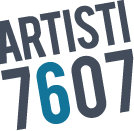PAST AND PRESENT
RIGHTS AND REMUNERATIONS
In Italy copyright law protection for creative works is ensured by Law n. 633 of 1941 and subsequent amendments. Such law recognizes, among others, the right to a fair compensation for performing artists for the exploitation of protected works in which they are performing.
These rights related to copyright – and the relevant remunerations due to performers for each use of protected cinematographic and similar audio-visual works – have been recognized only in 1994.
THE ITALIAN BLACK HOLE
Founded in 1977 by the trade unions to collect and distribute the fees accrued by Italian performing artists, the IMAIE (Istituto Mutualistico Artisti Interpreti Esecutori) has operated for thirty years in Italy as a de facto monopoly, extinguished in 2009 with reasons “on the persistence of dysfunctions in the management of the institution and its persistent inability to pursue the statutory purposes “.
GREAT QUESTIONS
Many people are wondering how IMAIE has set aside more than one hundred and forty million Euros belonging to performing artists without distributing such sum to the relevant right holders.
In 2010 the Association “Artisti 7607”, representing more than thousand artists, was founded. The request of a change in the administration of the artist’s rights in Italy has started to rise.
PERFORMERS CAN CHOOSE
In 2012, the Italian law (art. 39 legislative decree n.1/2012, then law n.27/2012) finally clarified that performers have – and have always had – the right to choose who shall manage their economic rights, and clearly stated that the Italian market of the management of rights related to copyright is, and has always been, ‘free’.
ARTISTI 7607 COLLECTING MANAGEMENT ORGANIZATION
In 2013 the cooperative company ‘Artisti 7607’ submitted to the Presidency of the Council of Ministers the beginning of its activity in the management and intermediation of rights related to copyright. Since 2013 ARTISTI 7607 is registered in the list of intermediaries as a new collecting society for performing artists in the audio-visual sector.
Today it collects and distributes the remunerations due to the artists for each specific use of their works, promotes study, research, training and support activities for performers, and is an associated member of the international company SCAPR (Societies’ Council for the Collective Management of Performers’ Rights).

